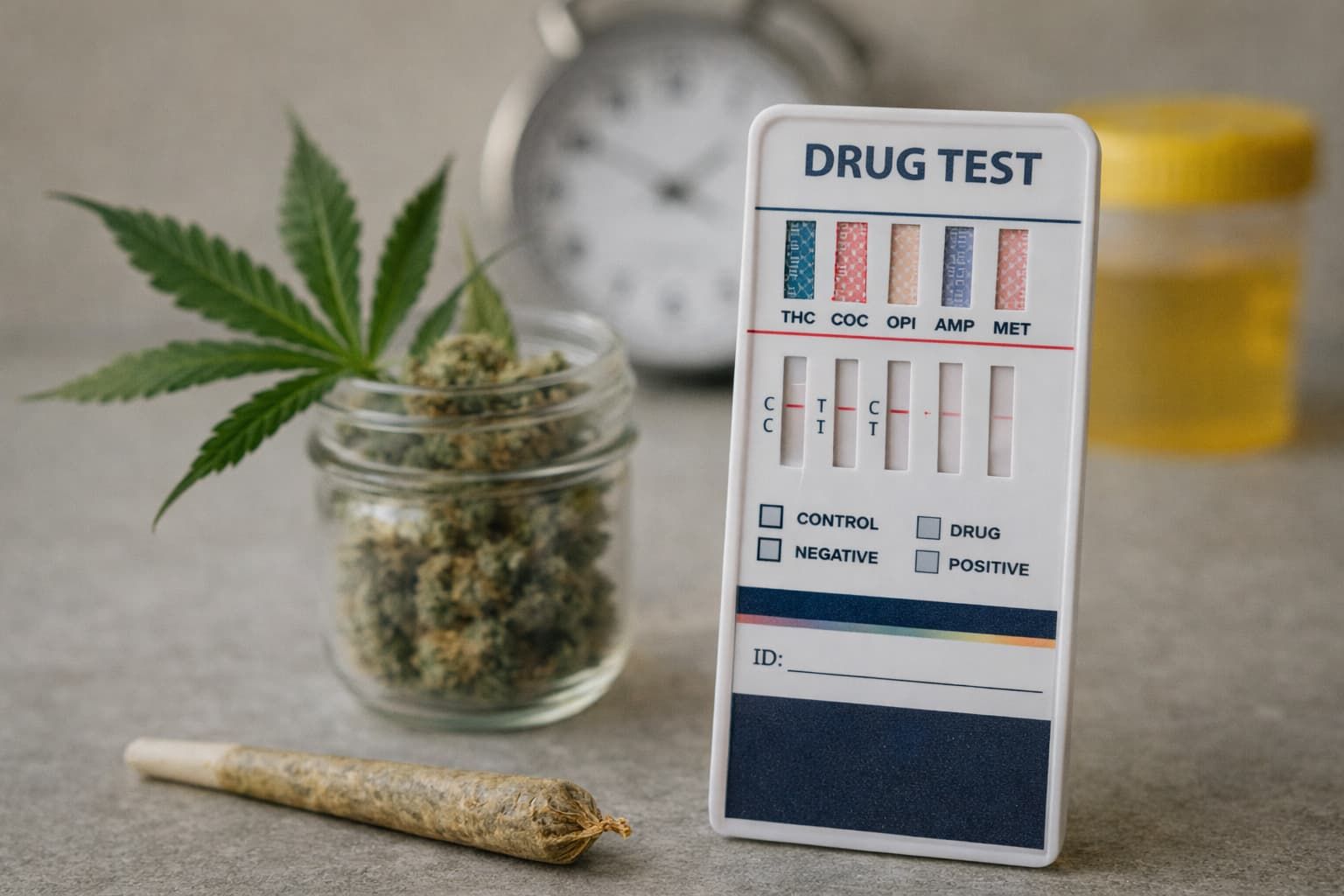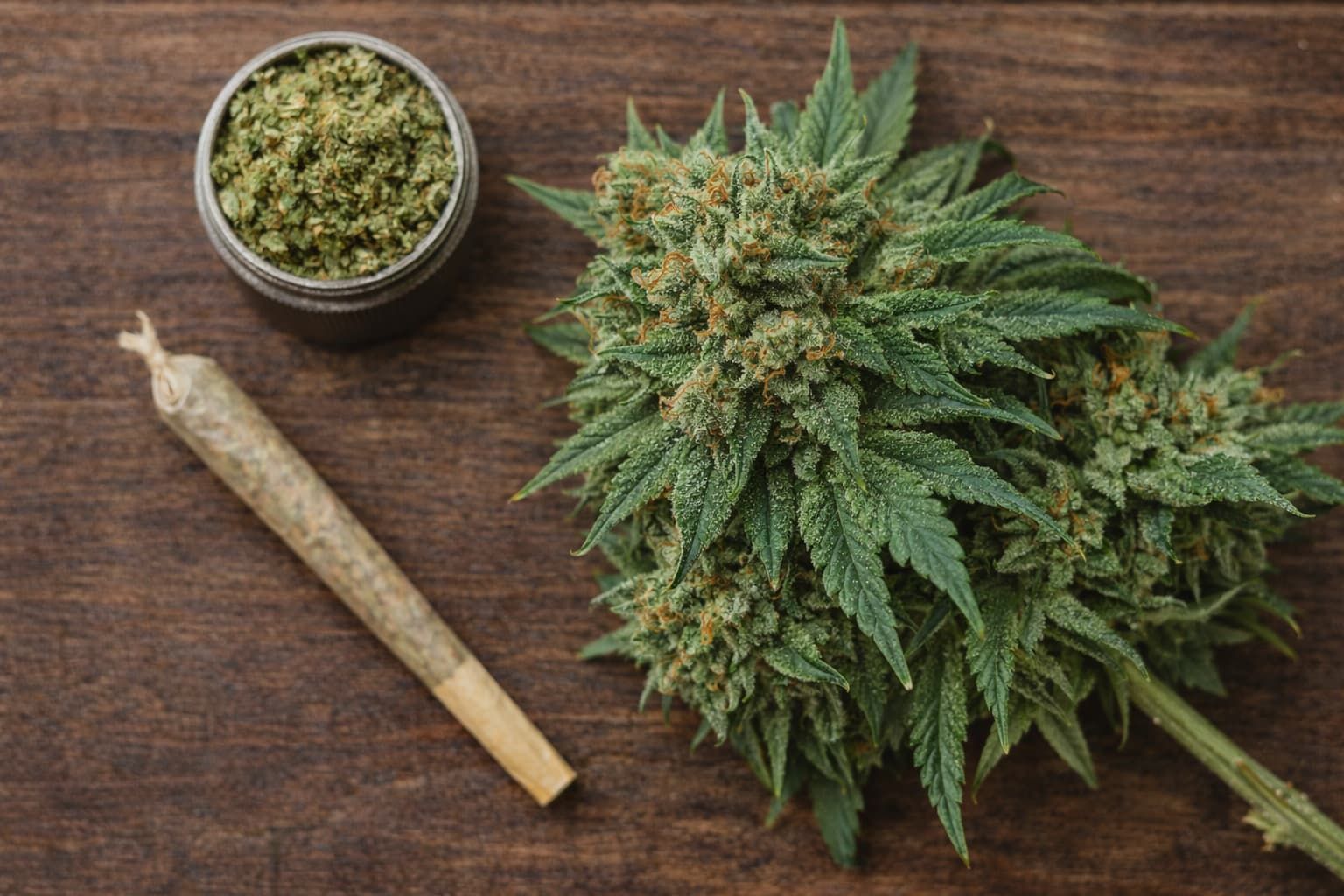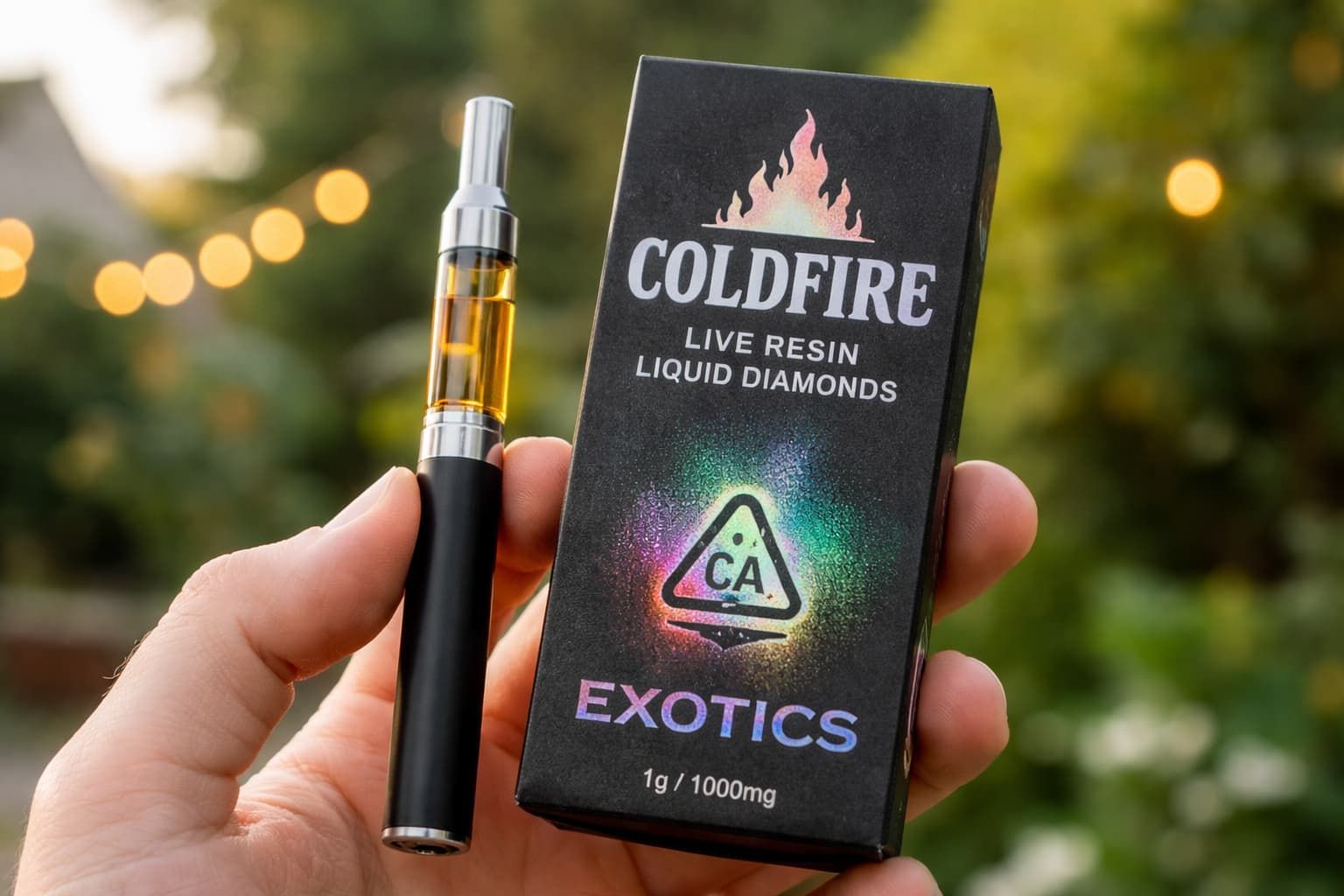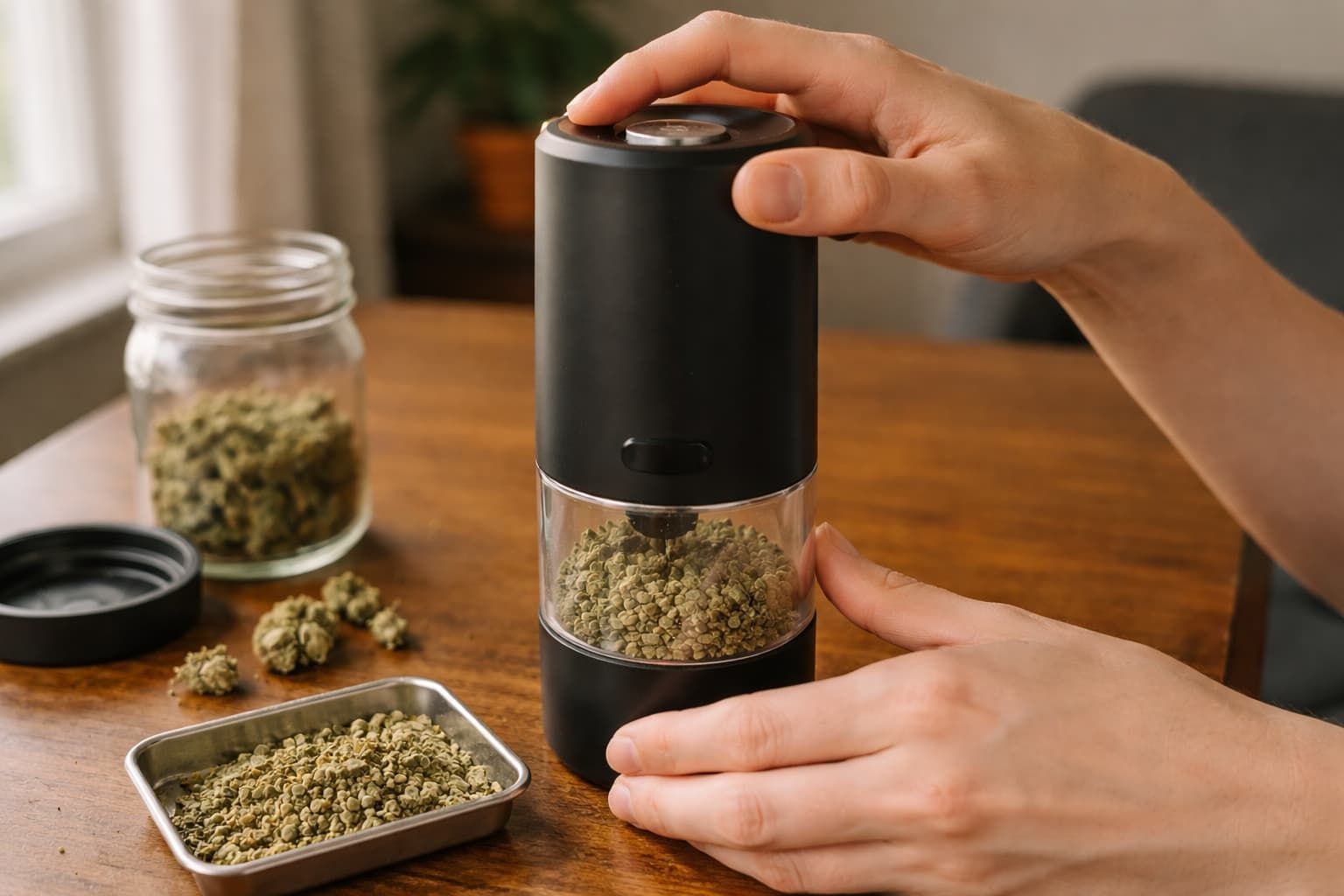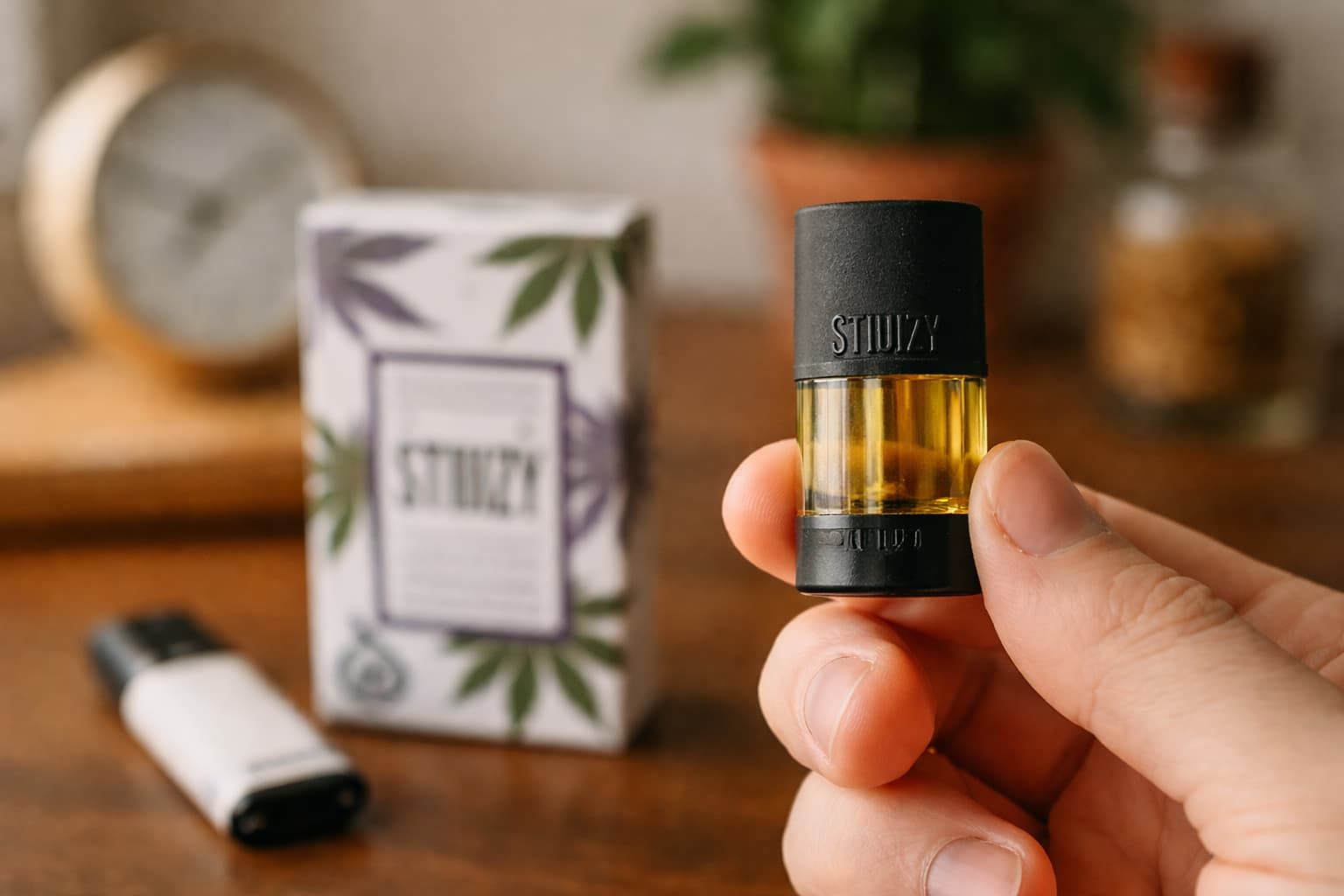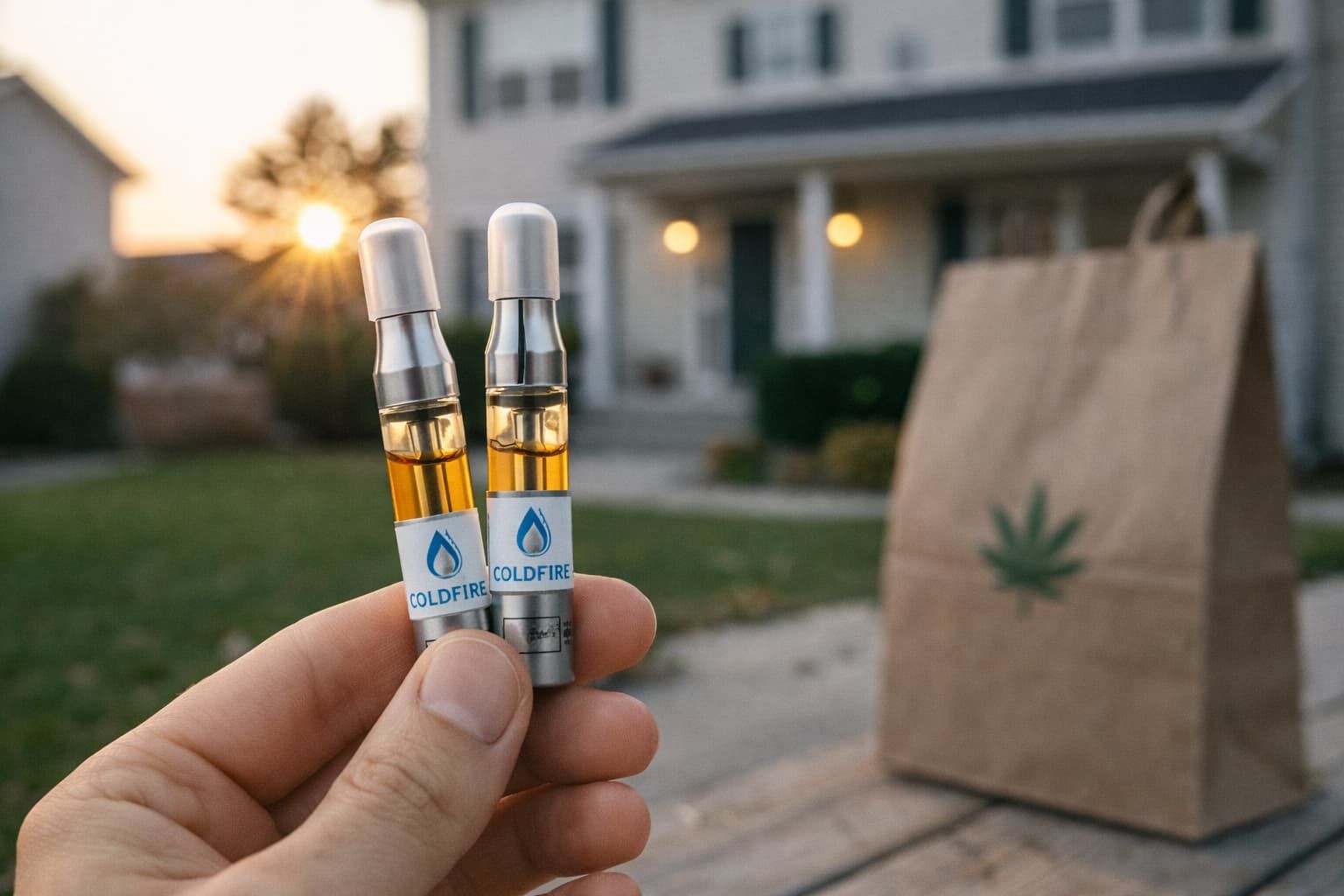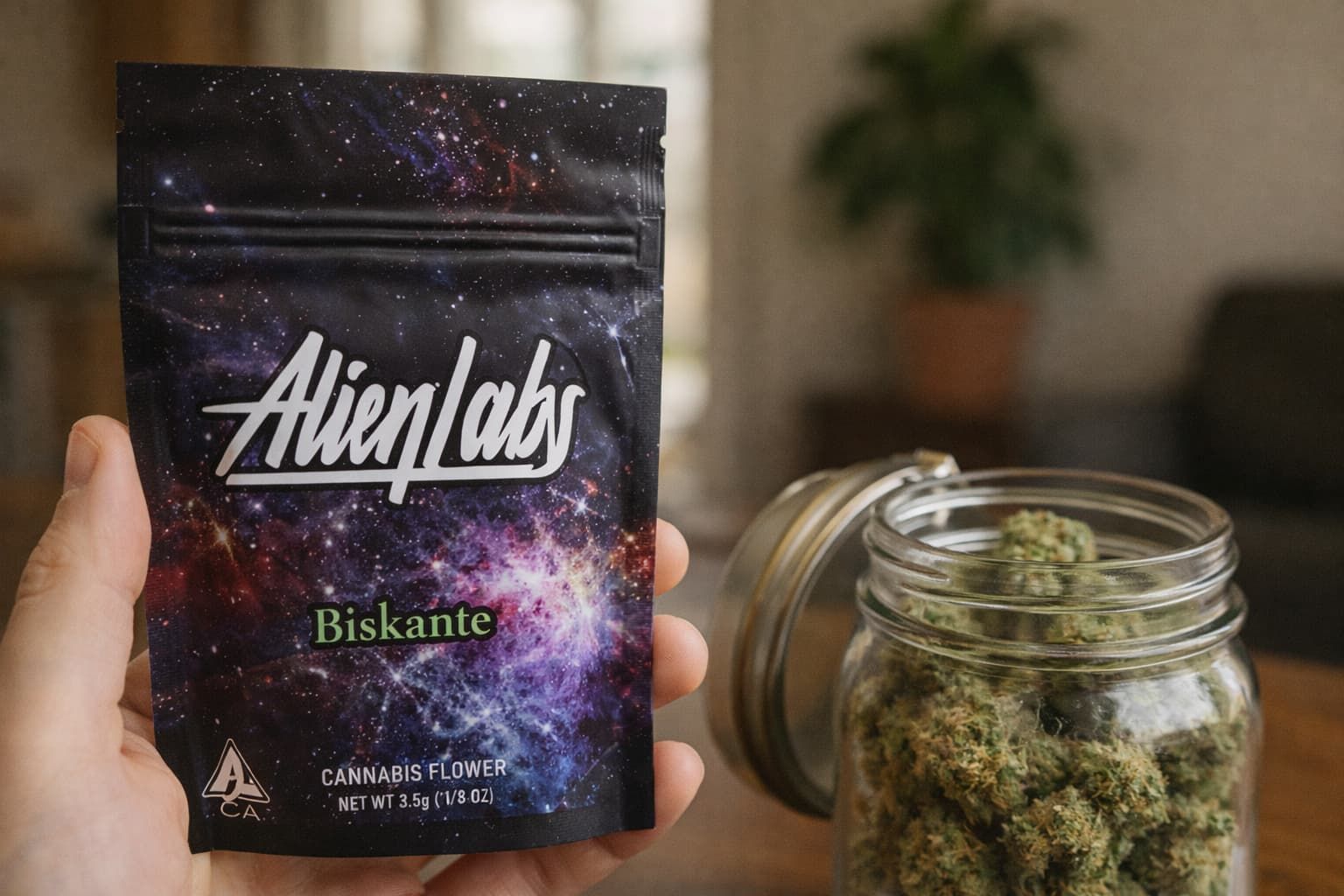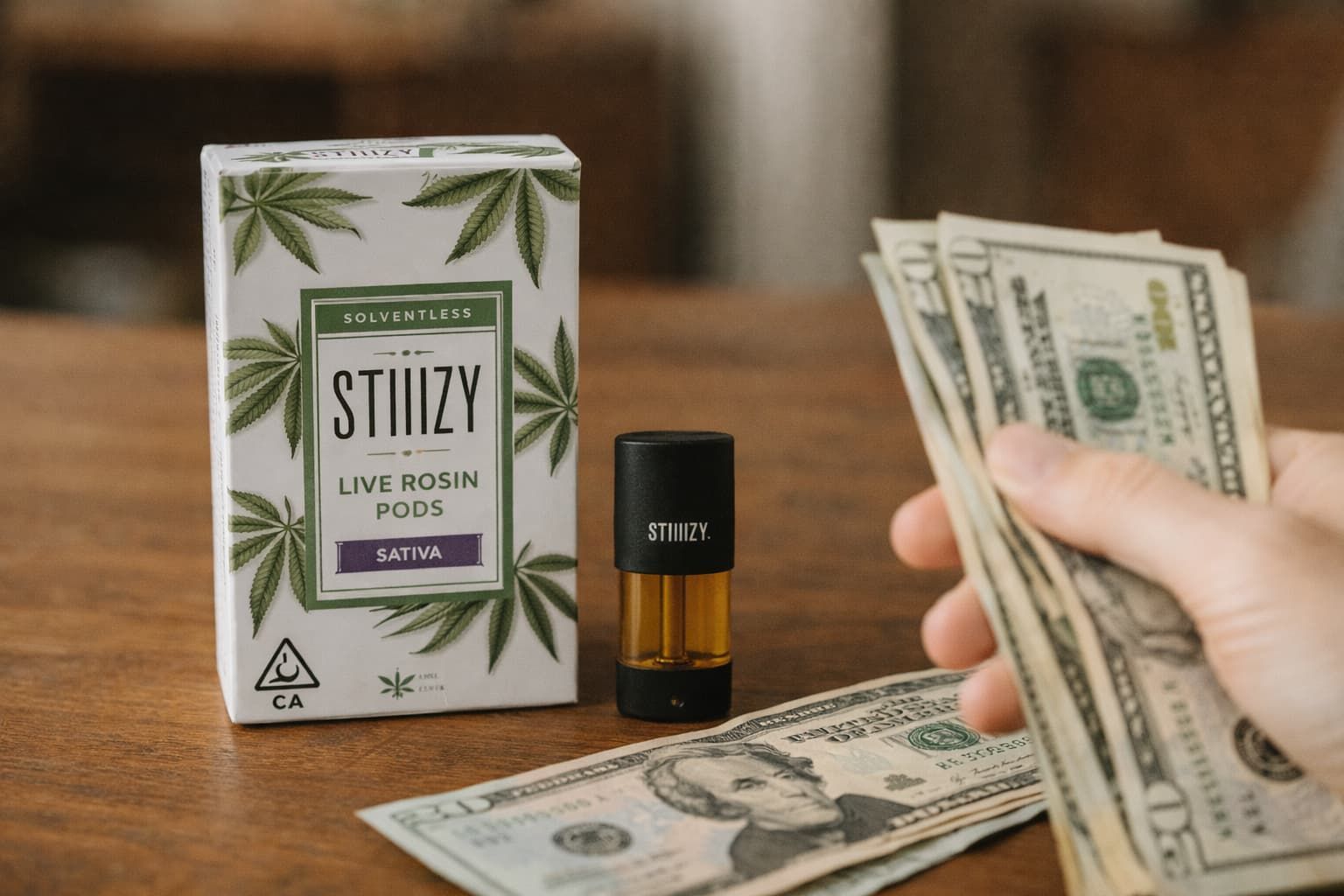Don't forget to return to your survey
and get your discount!

Knowing how to clean a weed grinder properly is essential if you want smoother grinding, better flavor, and a more enjoyable cannabis experience. A grinder might look simple, but it plays a major role in how evenly your flower burns or vaporizes.
Over time, resin, kief, and plant debris build up inside the teeth and screen, making it harder to twist and affecting the quality of your grind. When a grinder gets too sticky or clogged, it can dull flavors, trap moisture, and even increase the risk of contamination.
Cleaning a grinder is quick, easy, and can dramatically improve performance. Once you understand why buildup happens and what tools to use, you’ll be able to keep your grinder in top shape with minimal effort.
Why Cleaning Your Weed Grinder Matters
1. Smoother, More Even Grinding
Over time, sticky resin and plant particles pack into the teeth and edges of your grinder. This buildup makes it harder to twist and results in uneven chunks rather than a smooth, consistent grind. When your grinder is clean, the teeth slice through flower effortlessly.
2. Better Flavor and Aroma
Old resin adds harshness and bitterness to fresh cannabis. When you grind with a dirty grinder, that stale residue mixes with your bud, muting flavor and reducing aroma. Clean grinders let you experience each strain’s terpene profile the way it was meant to be enjoyed.
3. Improved Hygiene and Mold Prevention
A neglected grinder can trap moisture over time, which increases the risk of mold forming inside. That’s not just a theoretical concern.
A study by the Netherlands Institute of Mental Health and Addiction tested 105 cannabis samples sold in Dutch coffee shops. Researchers found that about one in five samples contained harmful bacteria or fungal residues.
While that study focused on retail cannabis rather than grinders, it highlights how easily cannabis products and related surfaces can harbor microbial contamination.
4. Protecting Your Grinder Investment
Quality grinders, especially metal ones, can last for years. Regular cleaning prevents corrosion, keeps threads smooth, and protects screens from clogging or tearing.
What You’ll Need to Clean Your Grinder
Before you begin, gather the right materials. The most important factor is whether your grinder is metal or plastic/acrylic, because the cleaning methods differ.
Tools and Supplies
- Soft brush (toothbrush, paintbrush, or dedicated grinder brush)
- Isopropyl alcohol (90%+ for metal grinders)
- Warm water
- Dish soap
- Cotton swabs
- Paper towels or microfiber cloth
- A freezer (for loosening stuck kief)
- Small scraping tool (plastic preferred)
What NOT to Use
- Harsh chemical cleaners
- Bleach
- Boiling water on plastic grinders
- Metal scraping tools on aluminum (causes scratches)
Step-by-Step Guide: How to Clean a Weed Grinder
Cleaning your grinder doesn’t take long. Instead, you only need as little as 20–30 minutes for a deep clean. Follow these steps for the safest and most effective method.
Step 1: Disassemble the Grinder
Unscrew and separate all parts:
- Lid
- Grinding chamber
- Screen (if 3- or 4-piece)
- Kief catcher
This makes it easier to clean everything thoroughly. While taking it apart, check for damage like bent teeth or worn threads.
Step 2: Remove Loose Debris
Tap each piece over a tray or paper towel. This shakes loose any leftover weed. Use a brush to clean out the corners, thread grooves, and around the teeth.
This alone can sometimes restore light performance issues.
Step 3: Freeze the Grinder (Optional but Recommended)
Place the grinder pieces in the freezer for 20 - 30 minutes. The cold hardens sticky resin, which makes it easier to scrape off without smearing.
Once frozen, use a scraping tool to remove anything stuck to the teeth or screen. This step also helps collect extra kief you might’ve missed.
Step 4: Deep Clean for Metal Grinders
Metal grinders are durable and safe to soak in isopropyl alcohol.
- Fill a container with 90% - 99% isopropyl alcohol.
- Submerge the grinder pieces for 20 - 30 minutes.
- Use your brush to scrub away remaining residue.
- Rinse thoroughly with warm water to remove alcohol.
- Dry every piece completely.
Isopropyl alcohol breaks down resin quickly and sanitizes at the same time, making this method the fastest and most effective for metal grinders.
Step 5: Deep Clean for Plastic or Acrylic Grinders
Do NOT use rubbing alcohol on plastic grinders. It can weaken the material, cause cracks, or release chemicals.
Instead:
- Soak the grinder pieces in warm water mixed with dish soap for 20 minutes.
- Scrub gently with a brush.
- Rinse thoroughly.
- Let it air dry.
Plastic grinders will never get quite as spotless as metal ones, but this method will restore functionality and cleanliness without damaging the material.
Step 6: Clean the Screen Properly
The screen is one of the most delicate, and most important, parts of the grinder.
For metal screens:
- Use a soft brush to loosen trapped kief.
- Avoid pressing too hard; screens can warp easily.
- If it’s badly clogged, soak the piece in isopropyl alcohol for a short period, then rinse.
For plastic screens:
- Stick to warm, soapy water.
- Brush gently from underneath to avoid stretching the mesh.
Never poke screens with sharp objects.
Step 7: Dry Your Grinder Completely
Moisture is the enemy of clean cannabis tools. Use a microfiber cloth to remove surface water and let all pieces air dry fully before reassembling. Trapped moisture can lead to mold and corrosion.
Once dry, your grinder should twist smoothly again like it’s brand new.
How Often Should You Clean Your Grinder?
The right cleaning schedule depends on your usage:
- Light users: once every 1–2 months
- Regular users: once every 3–4 weeks
- Heavy daily users: every 1–2 weeks
A general rule: If your grinder starts sticking, squeaking, or producing uneven chunks, it’s time to clean it.
Flower remains one of the most popular consumption methods. Flowhub reports that Statista data shows about 21% of U.S. adults aged 18–64 prefer cannabis flower when they consume. This means a significant share of consumers rely on grinders regularly.
If you’re in that group and grinding often, a more frequent cleaning routine will keep your sessions smoother and more consistent.
Tips to Keep Your Grinder Cleaner for Longer
Want to reduce how often you need deep cleans? Try these simple habits:
- Don’t grind overly moist weed. Sticky flower clogs teeth faster.
- Brush after every few uses. A quick sweep drastically reduces buildup.
- Tap the grinder upside down. Helps dislodge stuck kief.
- Avoid overloading. Smaller batches grind more efficiently.
- Store your grinder in a cool, dry place. Prevents moisture issues.
Small steps go a long way.
Common Mistakes to Avoid
Even simple cleaning routines can go wrong if you use the wrong tools or techniques.
To keep your grinder in great condition and avoid accidental damage, here are the most common mistakes to watch out for:
- Using alcohol on plastic grinders (weakens or damages them).
- Using metal tools to scrape aluminum grinders (scratches and shaves metal).
- Not drying thoroughly (trapped moisture = mold risk).
- Forcing stuck pieces to twist (damages threads).
- Boiling plastic grinders (warps or melts them).
A clean grinder lasts longer and so does your cannabis gear.
When to Replace Your Grinder
Even the best grinders eventually reach retirement. Consider replacing yours if:
- Teeth are bent or broken
- Threads are worn and won’t screw smoothly
- The screen is permanently clogged or torn
- It retains a stale smell even after cleaning
- Plastic pieces show cracks or discoloration
Investing in a high-quality grinder pays off with better performance, tighter design, and easier maintenance.
Conclusion
Cleaning your weed grinder doesn’t have to be complicated. With a little regular maintenance and the right cleaning method based on your grinder’s material, you’ll enjoy smoother grinding, better-tasting cannabis, and longer grinder life.
A clean grinder is a key part of a clean smoking or vaping experience and it keeps your favorite strains tasting exactly how they should.
If you're upgrading your grinder or stocking up on fresh cannabis to put that freshly cleaned grinder to use, Fiori Delivery offers a wide selection of premium flower, prerolls, edibles, and more.
Frequently Asked Questions
What is the best way to clean a metal weed grinder?
Soak the grinder pieces in 90%+ isopropyl alcohol for 20 - 30 minutes, then scrub with a soft brush. Rinse with warm water and let it fully dry before reassembling. This method removes resin quickly and sanitizes the grinder.
How often should I clean my weed grinder?
Light users should clean it every 1 - 2 months, while daily users should clean it every 1 - 2 weeks. Clean it sooner if it starts sticking, squeaking, or producing uneven grinds.
Can mold grow in a weed grinder if you don’t clean it?
Yes. Moisture and plant residue can trap bacteria and encourage mold growth inside the grinder. Regular cleaning prevents this and keeps your cannabis safe.
Can you use soap and water to clean a weed grinder?
Yes, but only for plastic or acrylic grinders. Metal grinders can be rinsed with soapy water, but alcohol cleaning is more effective for removing resin.
What tools do I need to clean a weed grinder properly?
Use a soft brush, isopropyl alcohol (for metal), warm water, dish soap, cotton swabs, and a microfiber cloth. A freezer and a small scraping tool are helpful for removing stuck kief.
Is freezing the weed grinder parts helpful for cleaning?
Yes. Freezing hardens sticky resin, making it easier to scrape off without smearing. It also helps you recover extra kief before deep cleaning.
Don't forget to return to your survey
and get your discount!


